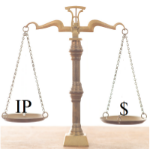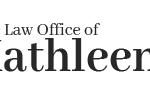
by Kathleen Lynch | Sep 2, 2014 | Intellectual Property
This week I am highlighting a recent article written by Mark Schultz and Adam Mossoff on the connection between intellectual property rights and economic prosperity. In sum, the article makes an excellent connection between the strength of a country’s IP system to that of its economy.
One could argue that a country like China that has not historically enforced intellectual property still has a strong economy. But China has made progress in their IP system and the enforcement of intellectual property rights under that system.
In general, the evidence seems to indicate that where intellectual property rights are protected, and where innovation is encouraged, the economy will grow.

by Kathleen Lynch | Aug 26, 2014 | Confidentiality, Entrepreneur, Intellectual Property, Inventor, Patent, Trade Secrets
I had lunch with a colleague who is an IP attorney and an engineer. He was telling me about his participation in a start up weekend and all of the challenges and fun that he had. In hearing this, we discussed, as patent attorneys do, the consequences of disclosing ideas to a loosely held group of people whose only relationship to each other is on the back of a napkin.
Most start up weekends do not impose any obligation of confidentiality on their attendees for all that is developed and disclosed in a 48 hour period. This raised the concern that perhaps anything that is developed that may be rather meaningful, i.e. might lead to actual commercialization of a product or service, may need to be “black boxed”. In other words, the team of developers could agree to disclose only the basic outline of the structure and/or function of the development and then disclose the details of the operation once a patent application has been filed or a confidentiality agreement has been signed.
To do otherwise may jeopardize the group’s ability to seek meaningful protection which may likely translate directly into meaningful funding. The US patent system has moved to a first inventor to file system. In that system, the inventor has a year to file on the invention developed after it has been disclosed. The rest of the world essentially requires absolute novelty. So if any invention is disclosed prior to a patent filing, any international patent rights outside the US may be lost completely. This is something worth considering when venturing into a start up weekend.
One aspect of any new development is the extent of patent protection available to the ultimate product or service. If all international patent protection is lost by the close of a start up weekend as a result of disclosure, then the level of funding and any significant patent advantage may be lost. It remains that anyone involved in a start up weekend should ask the appropriate questions regarding disclosure with the organizers and raise any concerns with the team as it could impact the protection and funding of what may be developed during the weekend.
Protecting your innovative developments is critical to any start up venture. Having the right person to help you make that decision is important. The Law Office of Kathleen Lynch PLLC is designed to help businesses such as yours keep ahead of the game. The first telephone consultation is free. Email us at [email protected].

by Kathleen Lynch | Jul 8, 2013 | Patent
Usually the Patent Office website provides a gateway to other information, such as a patent or trademark search information, related forms, general information, etc. However, on the home page, there are news items and information worth checking out. One of those is the IP Awareness Assessment Tool. This tool provides basic information for inventors and small businesses to help identify IP needs. In particular, the tool is a series of questions posed to help you understand what IP you may have and/or what IP you may want to protect. For example, you may think that you may need a copyright registration to protect your marketing material, but in fact, it might be more appropriately addressed and protected by trademark or service mark registration.
Having checked out the pre-assessment tool myself, I think it is a helpful starting point to those who are individual entrepreneurs, or small businesses who have not yet sought any IP advice. However, I would not rely on the tool alone and would seek advise from an attorney experienced in IP issues.







